
V1 V2 V3, Definition, Examples and Detailed List English Grammar Here
V1 V2 V3 Examples in English, V1 V2 V3 List in English V1 Base Form V2 Simple Past V3 Past Participle Be was, were been Beat beat beaten become became become begin began begun bend bent bent bet bet bet bid bid bid bite bit bitten break broke broken bring brought brought buy bought bought catch caught caught dig dug dug do did done fight fought fought find found found fly flew flown forget.
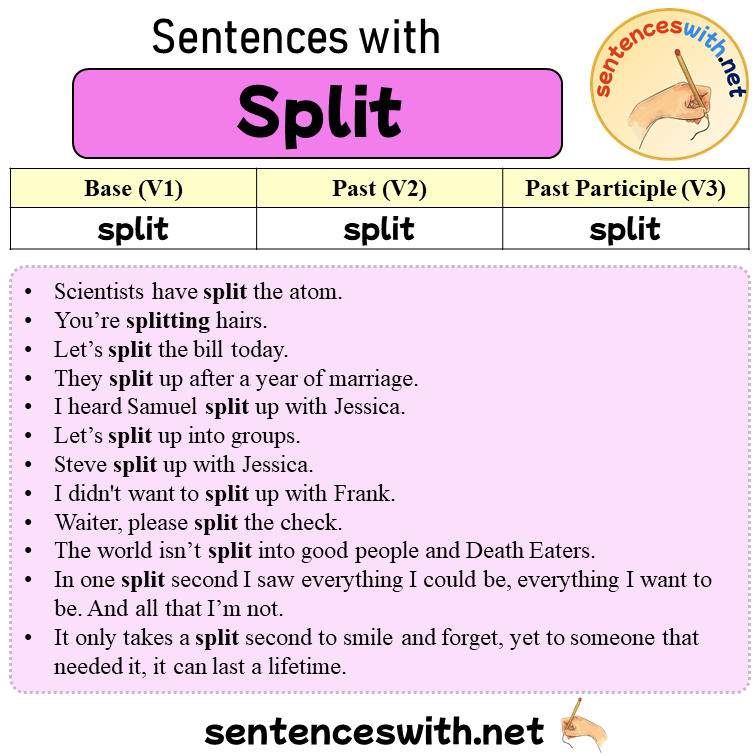
Sentences with Split, Past and Past Participle Form Of Split V1 V2 V3
V1, V2, V3, V4, and V5 Forms of Lie: Lie is a commonly used verb in the English language, with a range of meanings depending on the context in which it is used. Understanding the different verb forms of Lie is essential to communicate accurately and confidently. Here are some examples of the V1, V2, V3, V4, and V5 forms of Lie.

Pin on V1 V2 V3 Form of Verbs
Form V2 (past form) and V3 (participle form): To describe the time period of an action, the root form of a verb is inflected with a past tense. This tense is formed by adding -ed or -d to the root form. If the base form ends in a vowel, then the -ed or -d ending changes to -ied.
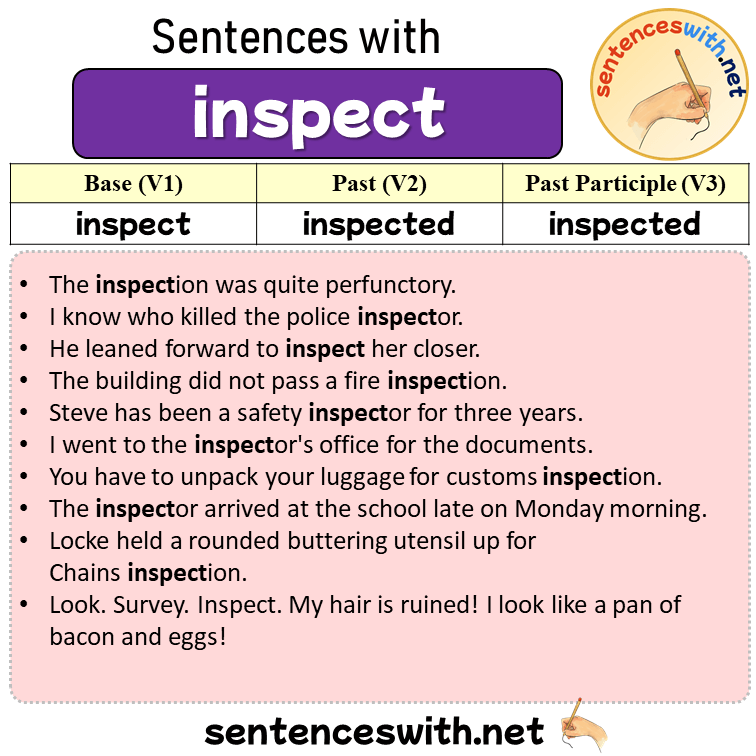
Sentences with inspect, Past and Past Participle Form Of inspect V1 V2 V3
Simple past tense sentences should be set with verb 2. In Past Tense sentences, irregular verbs should be in accordance with the following pattern; Subject + Verb 2 + Object Advertisements Examples: I took the bus last night. I slept yesterday at 12 o'clock. John took his car to New York last winter. Wrote a letter to a friend last night.

Teach Past Simple, Simple Past Tense of Teach Past Participle, V1 V2 V3 Form Of Teach Teach
Sentences with invite, Past and Past Participle Form Of invite V1 V2 V3; Sentences with invent, Past and Past Participle Form Of invent V1 V2 V3
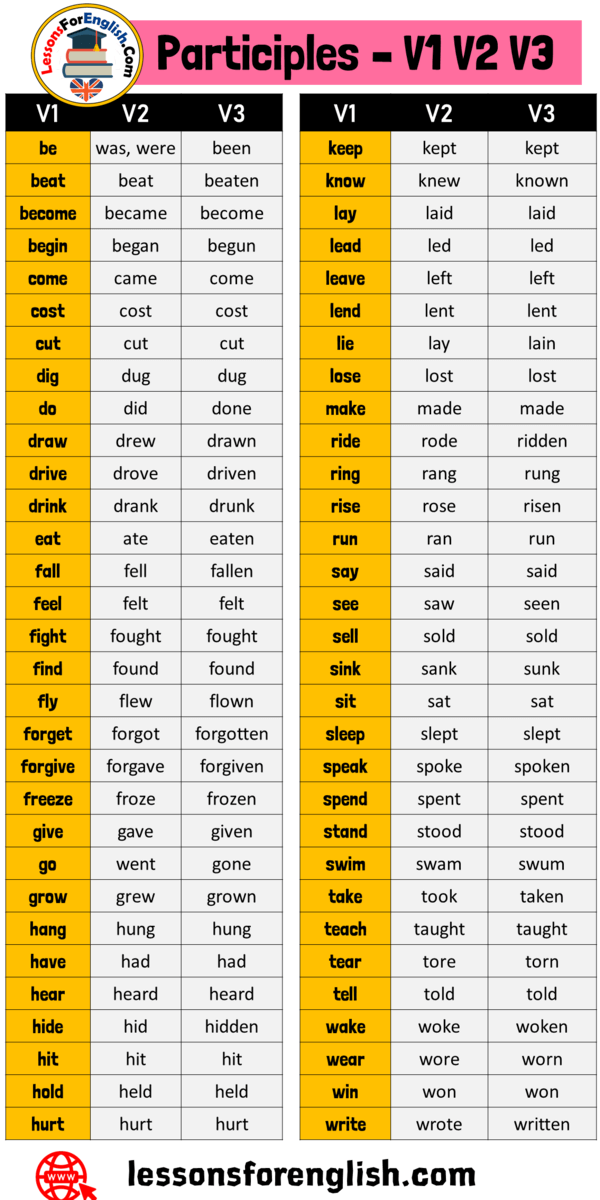
Participles, V1 V2 V3 List Lessons For English
English Versb; V1 V2 V3 Detailed List; V1 Base Form V2 Simple Past V3 Past Participle 1 Be was, were been 2 Beat beat beaten 3 become became become 4 begin began begun 5 bend bent bent 6 bet bet bet 7 bid bid bid 8 bite bit bitten 9 break broke broken 10 bring brought brought 11 buy bought bought 12 catch caught caught 13 dig dug dug 14 do did done 15 fight fought fought 16 find found found 17.
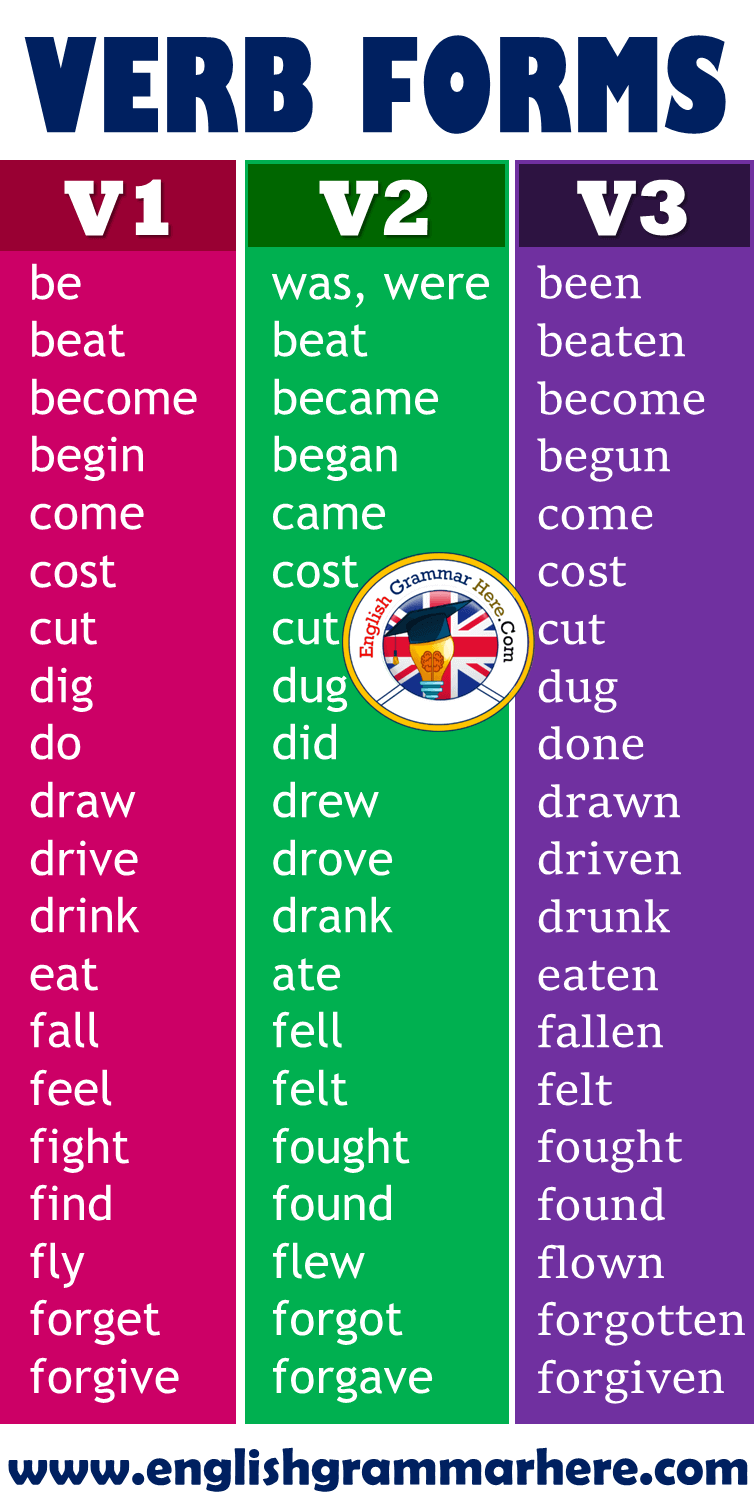
20 Verb Forms, V1 V2 V3 English Grammar Here
These forms of verb are commonly named as V1, V2, and V3. By modifying or adding different suffixes or prefixes to the base or root verb we make other different forms of verbs. The root verb is often used to represent the simple present tense. For example- Read, Write, Walk, Play, Run, Go . 1. Present (Root) Form of a Verb
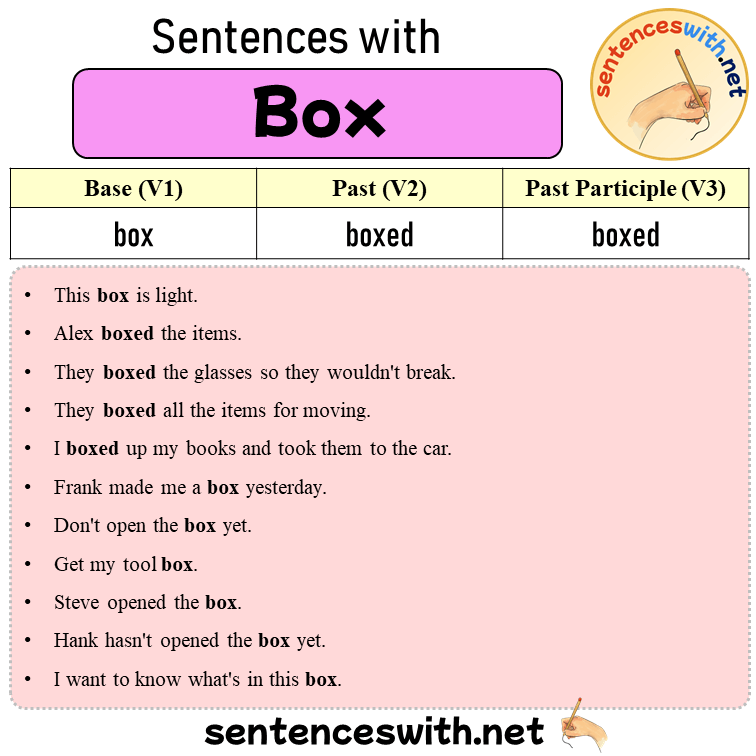
Sentences with Box, Past and Past Participle Form Of Box V1 V2 V3
Simple Present Tense Here, it is told that a situation or event is experienced routinely or continuously. The verb is used in plain form. In sentences made with "he - she - it", "-s" is added to the end of the verb. Depending on the structure of the verbs, these "-s" can come in different forms. They come here every weekend.
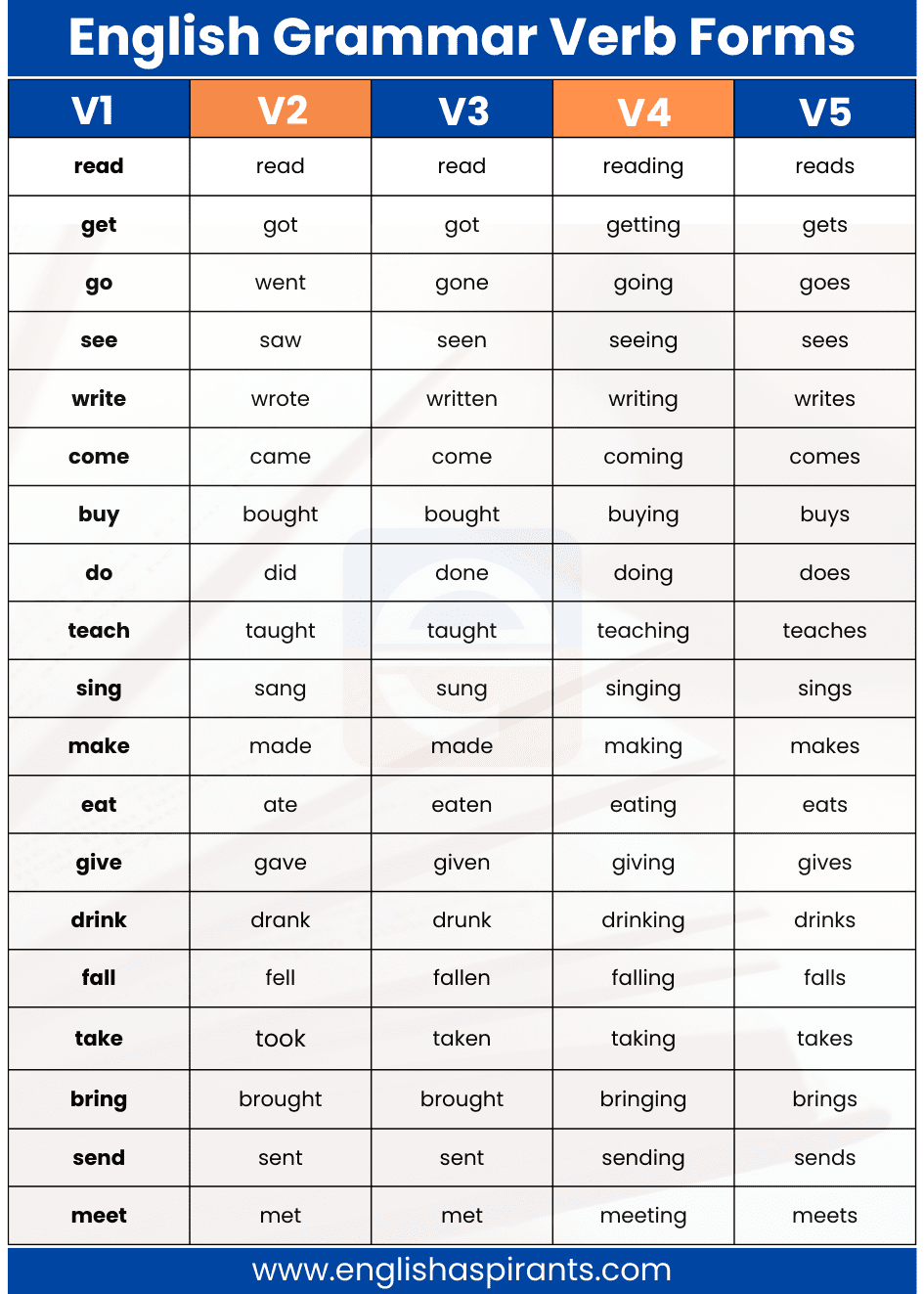
English Grammar Verb Forms V1 V2 V3 V4 V5 100 Words [PDF]
v1 v2 v3 forms of 200 words Irregular Verbs When studying a new language, it is essential to be familiar with its verbs. Because we are able to conjugate time with the help of verbs. With the Simple Past Tense, on the other hand, we come across the second form of verbs which are related to irregular verbs in English. Affirmative sentences containing the second form of verbs are required in.

V1 V2 V3 Form of Verbs, Definition and Example Sentences English Vocabs
v1, v2, v3 list in english, verb 1, verb 2 and verb 3 list, basic form (v1), past simpe (v2) and past participle (v3) in english; Base Form - V1 Past Simple - V2 Past Participle - V3 abide abode abode arise arose arisen awake awoke awoken be was/were been bear bore born beat beat beaten beget begot begotten begin began begun bend bent bent bereave bereft bereft beseech besought besought.
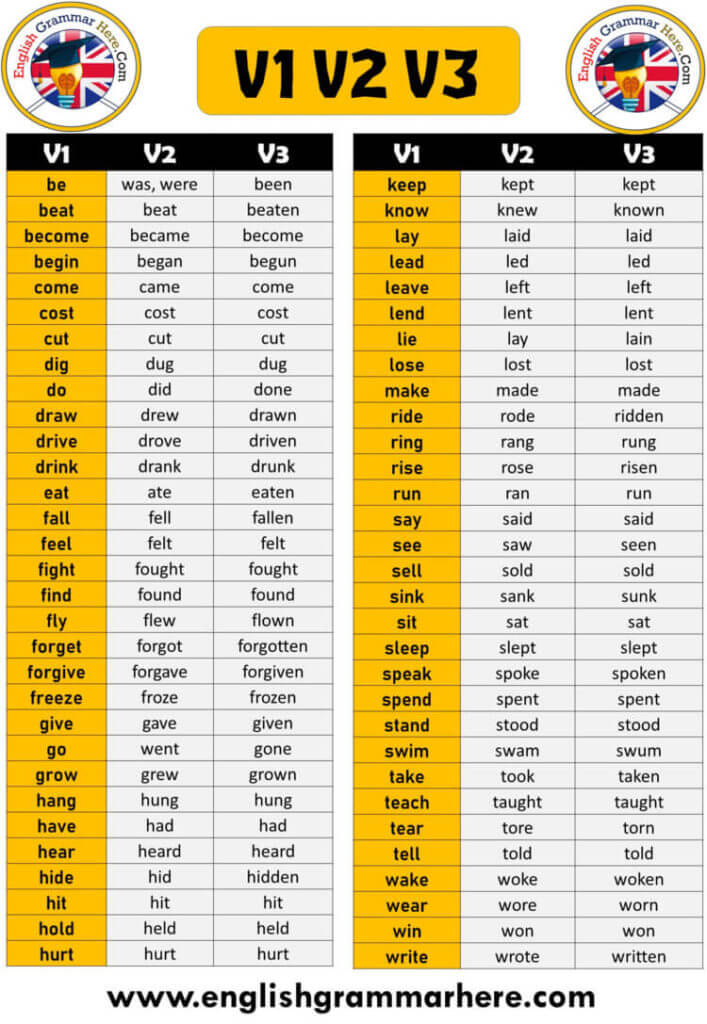
100 Verb Forms v1 v2 v3 English Grammar Here
sing has 5 forms: sing, sang, sung, singing, sings be has 8 forms: be, was, were, been, being, am, is, are Note that in dictionaries the headword for any given verb entry is always in the base form. Infinitive There are two possibilities for the infinitive: base form (the "bare infinitive") to + base form (the "to-infinitive")

V1 V2 V3 Grammar Tạo Câu Tiếng Anh Hoàn Hảo Với Cách Sử Dụng Đúng!
When it comes to using the verb "lend," it's important to understand its different forms: V1, V2, V3, V4, and V5. These forms include the past tense, past participle, and other verb forms that can be useful when communicating in English. V1 Form of "Lend". V2 Form of "Lend". V3 Form of "Lend". V4 and V5 Forms of "Lend".

Take Past Simple, Simple Past Tense of Took Past Participle, V1 V2 V3 Form Of Taken Take means
30 English Verbs List, Meaning and V1 V2 V3 Form Use of Verbs and Verb Types Words that describe a movement, a situation, or an event in a sentence are called "verbs". In terms of English grammar, verbs should also be used correctly in a sentence. Verb types and the use of these varieties are required for a correct sentence structure and a correct meaning. It is possible to see that verbs.
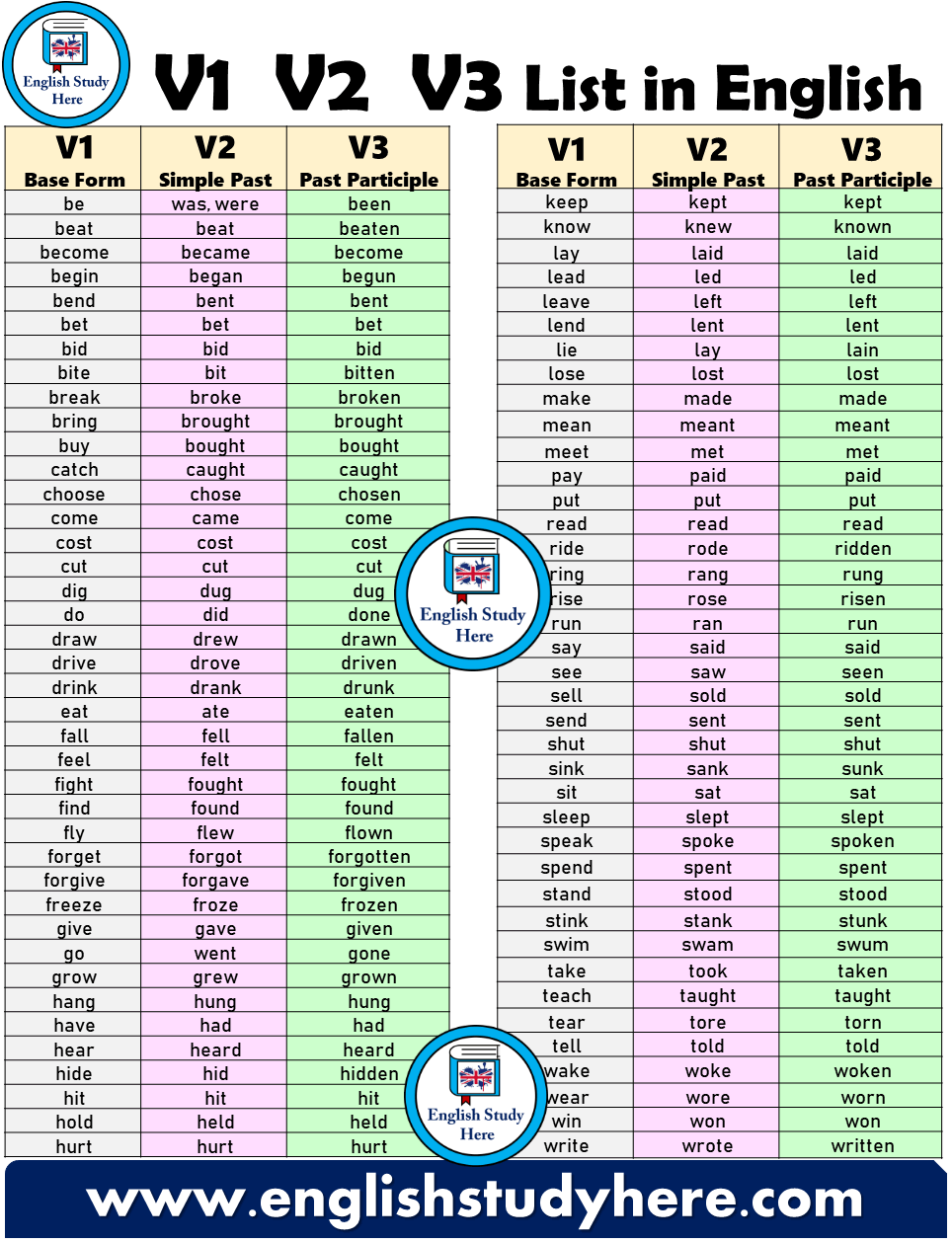
V1 v2 v3 slotasl
50 verb forms v1 v2 v3 in English, When learning English you need to know the meaning of certain words first, and then sort the words appropriately according to grammatical rules. Verbs in a regular structure can be transformed with a simple rule, whereas in irregular verbs, this situation is slightly different. It may be a good start to make some memorization and learn how to use the verbs in.

Say Past Tense, V1 V2 V3 V4 V5 Forms of Say, Past Simple and Past Participle Past tense
V1 V2 V3 Form of Verbs and Example Sentences Table of Contents V1 V2 V3 Form of Verbs What are V1, V2, V3 forms of Regular Verbs? Regular verbs ending in e only take -d in the past tense Most regular verbs in English have -ed in their V2 and V3 forms. These verbs end with a consonant
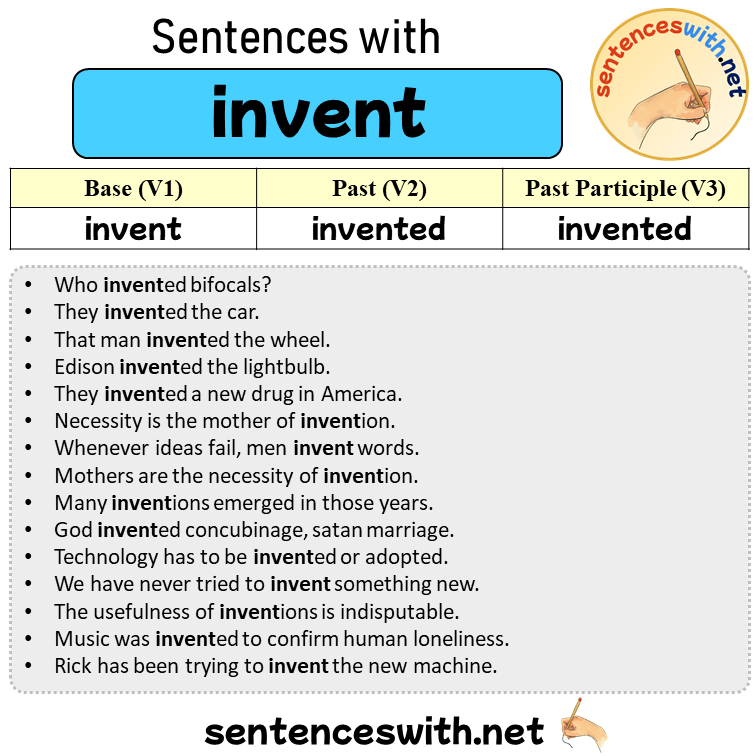
Sentences with invent, Past and Past Participle Form Of invent V1 V2 V3
A set of words that is complete in itself, typically containing a subject and predicate, conveying a statement, question, exclamation, or command, and consisting of a main clause and sometimes one or more subordinate clauses. (noun) The punishment assigned to a defendant found guilty by a court, or fixed by law for a particular offense. (noun)